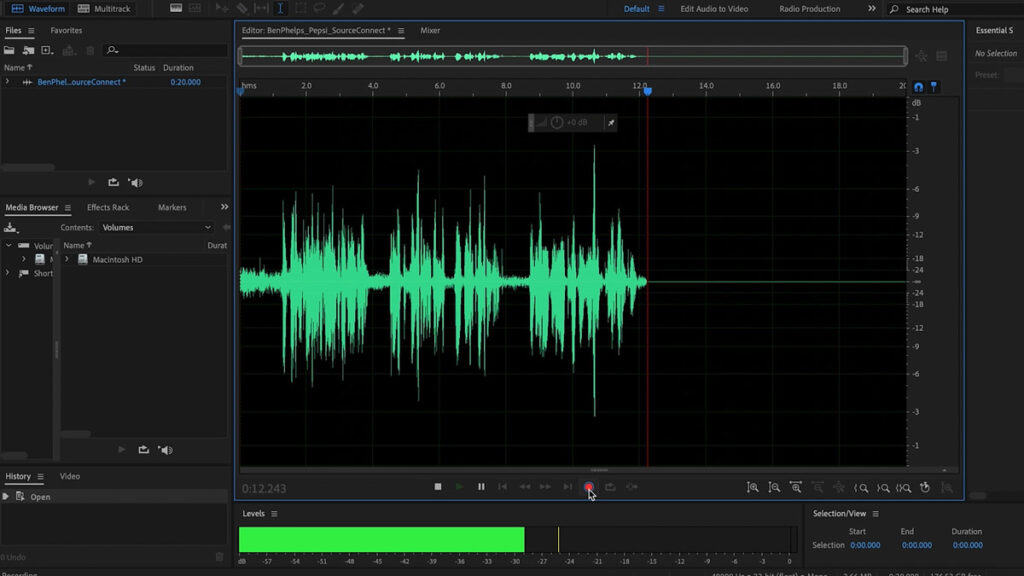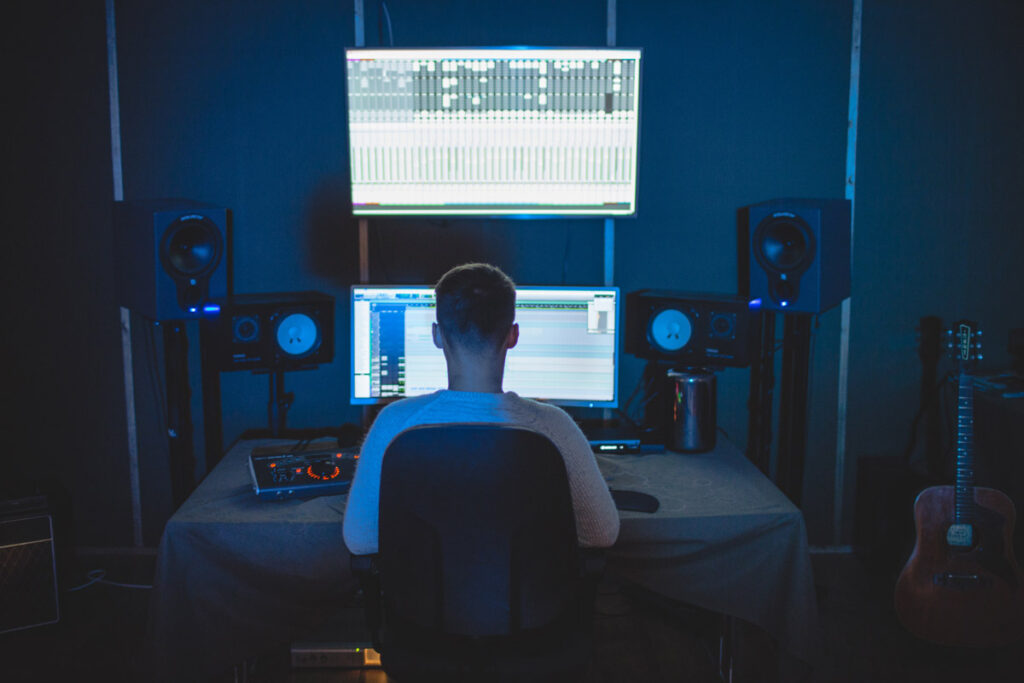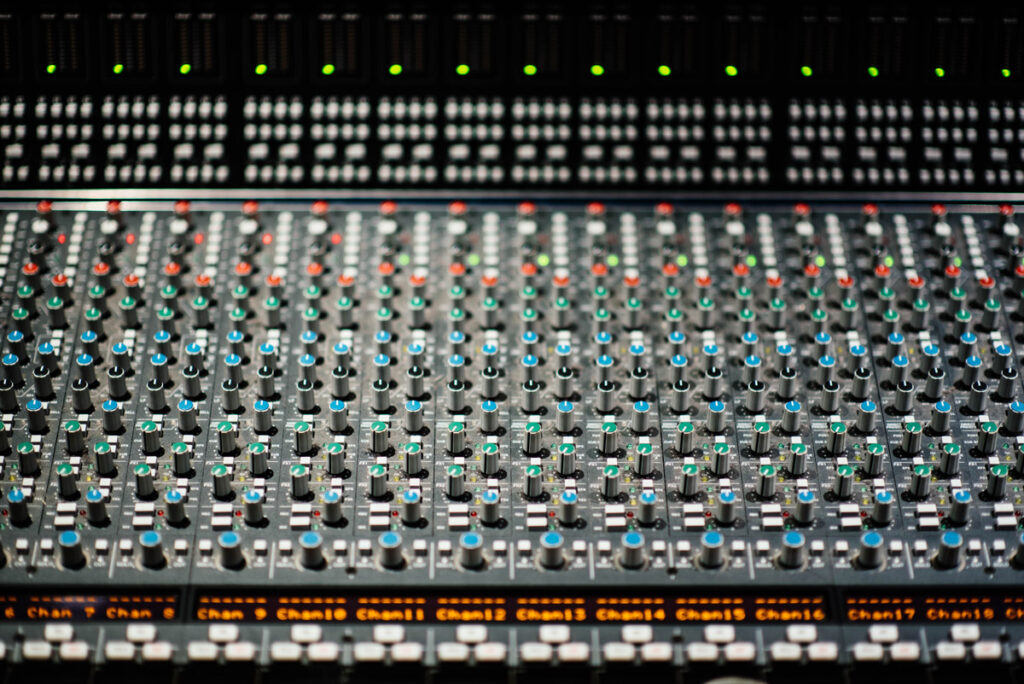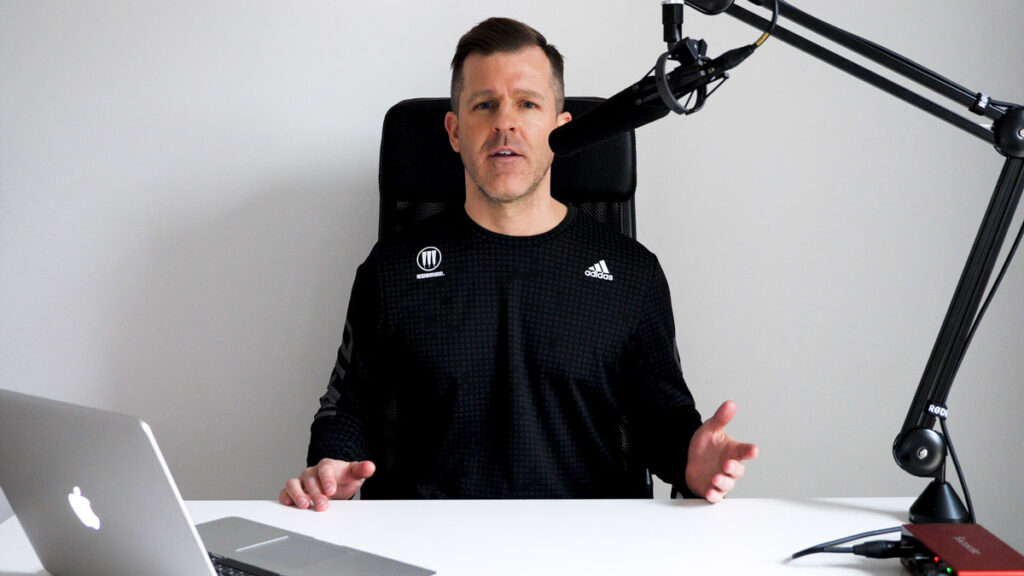As a voice actor, you have a lot on your plate already. Setting up your recording space, tracking down auditions, client outreach, invoicing – not to mention the actual voiceover work itself. Do you need to pile on an audio engineering degree too?
When it comes to whether voice actors also need audio engineering skills, it’s a yes and no equation.
Mostly no, a little bit yes. Don’t worry, I’ll explain.
There’s no need for voice actors to go to audio engineering school. But you do need to have a reasonable understanding of your recording space and your DAW.

What is a DAW?
A DAW is a digital audio workstation. That’s the software you use to record your sound files to your computer – and then edit them.
There are a lot of both paid and free DAWs. Reaper, Reason, Logic Pro, Audacity, Pro Tools, GarageBand and Adobe Audition are just a few of the many options out there for voice actors.
Beginner Voice Actors Don’t Need the BEST DAW Ever (Most Pros Don’t Either)
When you’re just starting out, many DAWs are straight-up overkill.
Let’s use Avid Pro Tools to illustrate the point.
- Pro Tools is an excellent, feature loaded recording software, and is an industry standard in professional recording studios and movie post production houses. It’s the pinnacle.
- Accordingly, the license to use it is fairly expensive.
- And it’s SO feature loaded that trying to use it without a baseline knowledge of how a DAW works might be confusing – and getting up to speed on it could become another (unnecessary) hurdle to starting your voice acting business in earnest.
- If you want to become a professional audio engineer, it’s required learning.
- If you want to become a working voice actor, it is not.
Most of what you’ll be doing when you record and edit your voiceover auditions and paid VO work will be setting a good level – and hitting the record icon. And you’ll be exporting MP3 or WAV files to send to casting directors or clients.
That can be done on any DAW.

You don’t need the exact software audio engineers use to record Daft Punk albums and craft intricate sound design for feature films to complete those simple VO related tasks.
I’ll be straight, Pro Tools is a fantastic piece of software to add to your VO toolkit. And once you’re working and making money as a voice actor, you may want to consider upgrading. But, let’s be real, most working professional voice actors can get away with using fairly basic software too.
Here’s why…
Voice Actors Shouldn’t Heavily Compress or EQ Their Audition Files
Solid EQ and compression are two of the many processes used in making broadcast commercials, audiobooks, animation and radio promos sound as good as they do.

But voice actors should leave the lion’s share of any equalization and compression off their audition submission files.
This is for a number of reasons. But the two main reasons are:
- Your potential clients want to hear what your voice sounds like in your recording space. They’re looking to hear what it will sound like if they hire you for a live directed voiceover session.
- Those clients have their own audio engineers they are paying to professionally edit, equalize and compress your voice files if you book the job. And no matter how good you are – they are better.
Focus on the quality of your read first and foremost. If you send an audition that shows mastery of the script, the clients will book you. And they will have their own audio engineer who will make your voice files commercial ready.

What Beginners Should Focus on Instead
- The art of voice acting: Yes, voice over is an art. If all voice actors had to do was read words off a page into a microphone, way more people would be good at it. But it’s also a skill you can improve upon with hard work. Practice and you WILL get better!
- Your recording space: I don’t want to beat a dead horse here, but your recording space matters (maybe more than your microphone).
- Mic placement: Understanding the polar pattern of your microphone can help you line up in front of it so you’re getting the best sound possible. Proper distance counts as well. You don’t need an audio engineering degree to figure this out. Test different placements out (including offsetting your mic so it’s angled) until you find the sweet spot for your particular microphone.
Start Your Career as a Voice Actor
Voice Over: The Ultimate Beginner’s Guide
If you want to learn all about the important stuff to know when just starting out as a voice actor, check out my course for beginners.
* Of Course There Are Exceptions
Listen, I’m not trying to talk you out of learning a new skill. Audio engineering is exciting – and having a working knowledge of that stuff will be an asset in the long run.
Important to consider: there are definitely experienced voice actors who can market themselves as a one-stop-shop for voiceover and post-production because of their skills in both realms.
I’m simply saying to beginners: you’ve got enough on your plate at the start of your career. Get the actual voice acting portion down cold before you worry about mastering your audio engineering skills.
And check out these other things beginner voice actors should know about:
- The One Thing Successful Voice Over Artists All Have in Common
- 6 Simple Voice Acting Tips
- A Day In The Life of a Voice Actor
Plus, gear reviews for voice actors:
- Focusrite Scarlett 2i2 Audio Interface Review
- Sennheiser MKH 416 Microphone Review
- Sony MDR 7506 Headphones Review
Curious about how to start your voice acting career? Want to learn more about voice acting and the things beginners should know about the voice over industry? It’s more than just having a great voice. Bring your natural talent and check out this voice over training course for beginners!



Leave a Reply